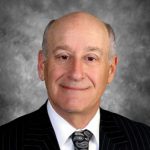Wholesaling
At one time what we now call “wholesaling” was performed by those who did not hold real estate licenses and who, for the most part, advertised on telephone poles: “We buy houses in any condition.” I concluded that the practice was an end of run around licensing requirements by those who were happy enough to take advantage of home sellers who were afraid of fees. The practice, again as I saw it, was rife with conflict of interest. We guide you to sell cheap so that we can sell high(er).
Years ago I did an article along these lines and in my preparation, I called many wholesalers. In almost each case, I was greeted by a message and told to leave a number. On occasion, I reached a live receptionist who took my name and asked my address. For each contact I made, I said that I was writing an article about the advantages and disadvantages of wholesaling and that I wanted the perspective from the wholesaler’s side. How many calls were returned? Zero.
At least twenty years ago, I contacted members of the Real Estate Commission to see what the Commission might do about wholesaling. I was told that since wholesalers acquire an equitable interest in real property, they can act as an owner. Since equitable owners (those with the right to purchase pursuant to a written agreement) can sell his or her property without having a license, so can these wholesalers. The problem is that these “equitable owners” require take their equitable ownership without the intent of ever actually taking title. The practice employed by many wholesalers is a pretext to circumvent licensure.
I proposed a remedy. Consider that those who hold power of attorney are also exempt from licensure if they are marketing property for their principal. He or she who holds power of attorney has the right to act on behalf of the owner. The license law, however, provides that an attorney-in fact, may not use that status to circumvent licensure. In other words, I can’t accept power of attorney status for all of my neighbors and friends simply for the purpose of marketing their real property. Only if I am appointed for the purpose of truly acting as an attorney-in-fact can I do so. Why not say the same thing about wholesalers who use the “equitable ownership” loophole.
Provide that it may not be used to circumvent the law and only equitable owners who truly are obligated to purchase (with certain exceptions), may act in the absence of a license.
Wishful thinking. The loophole has not been closed.
Today, licensed practitioners have entered the wholesaling arena. Salespersons and brokers acquire an “equitable ownership” interest in real property and then market those interests for profit. I’ve even seen one licensee write on a Facebook post how much money she made over the price she was paying to the true seller. She was also explaining the concept of novation which, according to her, meant that a transfer tax had to be paid only on the “transaction from true owner to ultimate buyer”
rather than on the two transactions involved. The explanation was wrong (these are very fact specific) and the real estate practitioner who made the post subjected to herself to myriad problems, assuming someone was looking.
Wholesaling may have a legitimate purpose of allowing those who do not wish to place their homes in condition for discerning buyers and who are truly desirous of selling as-is. And perhaps there are other reasons. If, however, there is a place for wholesaling, then substantial disclosure is imperative. The seller needs to understand that by engaging a real estate licensee with a fiduciary duty, he or she may learn the true value of the property offered and may come to understand what is in his or her best interest. The sellers who avail themselves of wholesalers should understand that there may be no fiduciary duty owed and should be encouraged to determine value independent of the wholesaler’s opinion. Wholesalers should not claim to represent the owner or indicate that the
wholesaler is out to advance the best interests of the owner. To be clear, practices vary and each program should be carefully identified with clear disclosure and admonitions.
A last word has yet to be written as to wholesaling, but, if you are inclined to do so, it should only be after consultation with legal counsel who can provide the benefit and legal opinion upon which you may rely, and who can provide clear disclosure to prospective sellers.

